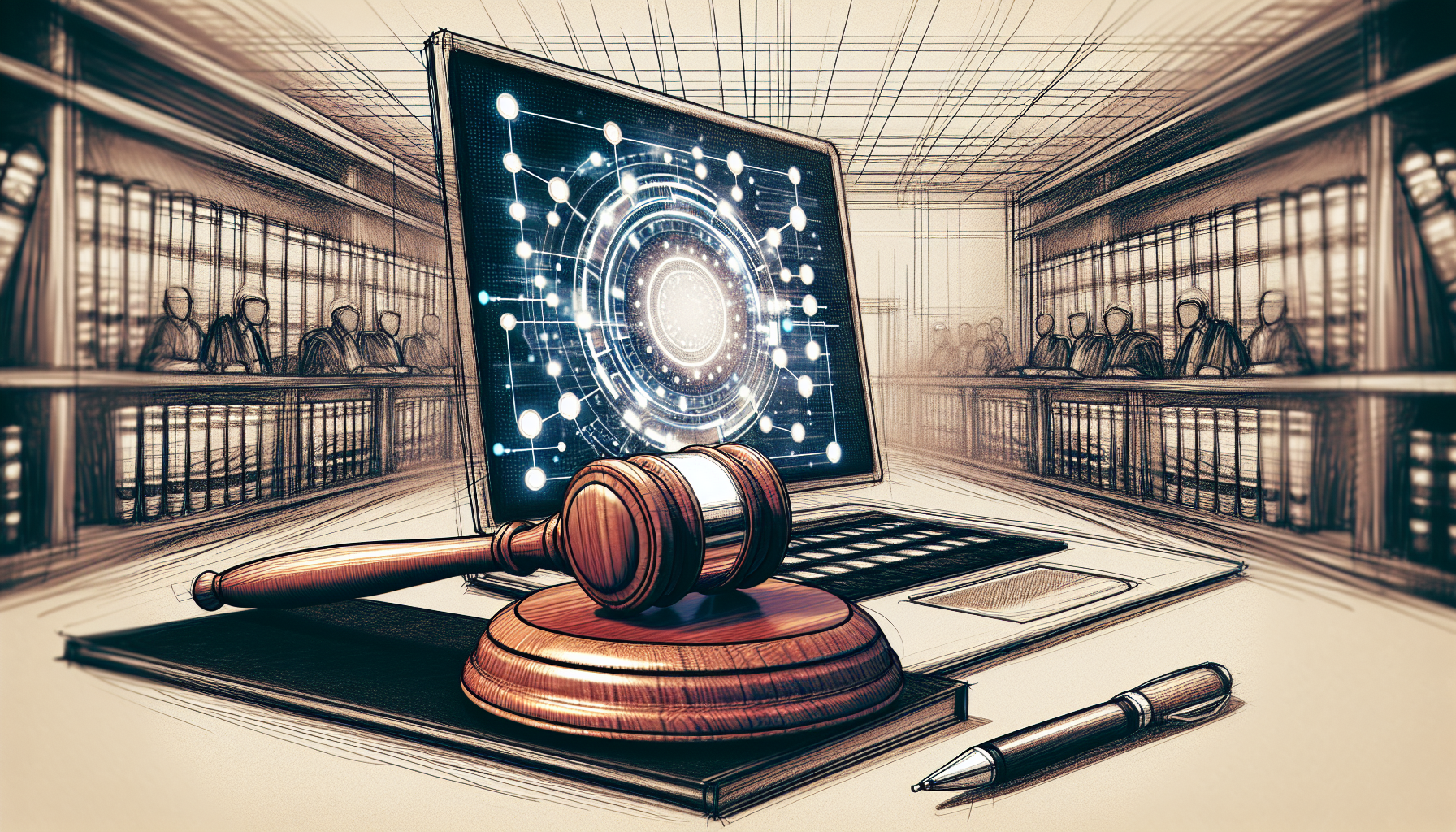
Setting the Stage: The Modern Paralegal Toolkit
The legal profession is evolving at an unprecedented rate, blending traditional courtroom strategies with cutting-edge technology. Historically, paralegals relied on meticulous paper trails, extensive manual research, and in-person collaboration. Today, technology such as document management systems, cloud computing, and artificial intelligence (AI) are transforming these traditional practices.
The integration of AI, specifically tools like ChatGPT, signals a significant shift in the paralegal’s toolkit. With capabilities that go beyond automation, AI supports enhanced legal research, document summarization, and even the crafting of defense strategies. As we delve into the specifics of leveraging ChatGPT for theft and burglary defense, consider how these modern tools can augment and refine the traditional paralegal role.
Harnessing ChatGPT: The Basics for Paralegals
ChatGPT, an example of a Large Language Model (LLM), is designed to understand and generate human-like text based on vast datasets. This makes it an invaluable resource for paralegals tasked with drafting documents, comprehensively reviewing case files, and formulating defense strategies.
Key Benefits of ChatGPT:
1. Efficiency: ChatGPT can generate substantial text in seconds, drastically cutting down the time required for drafting and research.
2. Accuracy: With vast pre-trained datasets, ChatGPT can identify and replicate the accurate legal language and citations necessary for high-quality legal documents.
3. Time-Saving: By automating repetitive tasks, paralegals can focus their efforts on more complex aspects of case management and client interaction.
These attributes make ChatGPT a supportive tool in the paralegal arsenal, augmenting their ability to provide comprehensive support to attorneys.
Also read:
Nuanced Prompting: The Art and Technique
While understanding the basic functionalities of ChatGPT is essential, mastering the art of nuanced prompting can unlock its full potential. Effective prompts are crafted to guide the AI in generating the most relevant and precise responses.
General Rules for Crafting Effective Prompts:
– Be Specific: Specify exactly what you need. Broad prompts can lead to unfocused results.
– Provide Context: Give background information to narrow down the outputs.
– Iterate and Refine: Start with a general prompt and iteratively refine based on the responses received.
Examples in a Legal Context:
Basic Prompt: “Draft a defense argument for a theft charge.”
Advanced Prompt:
“Draft a defense argument for a client accused of theft from a retail store, emphasizing lack of intent and challenging eyewitness credibility. Include references to case law that supports the argument.”
By enhancing prompts with specific legal contexts and desired angles, paralegals can extract more nuanced and actionable insights from ChatGPT.
Also read:
Creative Legal Defenses: Leveraging AI Insights
Innovative angles in defense strategies present a critical advantage in theft and burglary cases. Using tools like ChatGPT can inspire unique perspectives that may not be immediately evident through traditional research.
Generating Unique Defense Angles:
1. Scenario Analysis: Run varied scenarios through ChatGPT to explore different outcomes and strategic responses.
2. Cross-Referencing Case Law: Use iterative prompts to identify relevant case law that strengthens your defense argument.
Using Iterative Prompts for Improved Results:
Begin with a broad prompt and narrow it down iteratively. For instance:
*Initial Prompt*: “Develop a defense strategy for a burglary charge.”
*Refined Prompt*: “Develop a defense strategy for a burglary charge, focusing on alibi and discrediting fingerprint evidence. Mention precedent cases that support this strategy.”
This iterative approach helps fine-tune the responses, making them more aligned with the case specifics and legal nuances.
Also read:
Document Review and Summarization: Speed and Precision
The vast volume of documents in legal cases can be overwhelming. Here, ChatGPT excels by rapidly summarizing extensive texts, easing the paralegal’s workload.
The Power of AI Summaries:
– Efficiency: Documents that would take hours to review can be summarized within minutes.
– Precision: Key points and relevant information are highlighted succinctly, ensuring nothing is overlooked.
Cross-Verification Techniques:
Even though AI summaries are efficient, accuracy verification remains crucial. Paralegals should cross-check AI outputs with original documents, ensuring consistency and comprehensiveness. Using multiple AI tools or combining AI outputs with manual verification can further enhance accuracy.
Also read:
Ethical Considerations and Best Practices
While leveraging AI provides numerous benefits, it also introduces ethical considerations that must be diligently addressed.
Balancing AI Efficiency with Ethical Responsibilities:
1. Transparency: Ensure transparency about the use of AI tools in the preparation of legal documents.
2. Supervision: Maintain human oversight over AI-generated content to prevent errors or biases from seeping into legal arguments.
Confidentiality and Data Privacy Concerns:
– Ensure that sensitive client data is not input into AI systems without robust data privacy measures.
– Use encrypted communication channels to safeguard information from unauthorized access.
Also read:
Integrating ChatGPT into Daily Workflow: Practical Tips
To fully harness ChatGPT’s potential, integrating it seamlessly into the daily workflow is essential.
Streamlining Routine Tasks:
1. Organize Workflows: Create standardized prompts and response protocols for common tasks.
2. Automate Repetitive Tasks: Use ChatGPT for routine documentation, initial drafts, and research summaries.
Long-Term Impacts:
The integration of ChatGPT is not just a short-term efficiency booster but a long-term game-changer. It enables paralegals to manage more cases simultaneously, ensures higher quality of legal arguments through comprehensive research, and ultimately contributes to a more effective legal practice.
As the blending of traditional and modern tools becomes the norm, paralegals must stay adaptable and informed, continuously refining their techniques and leveraging AI to deliver optimal legal support.


